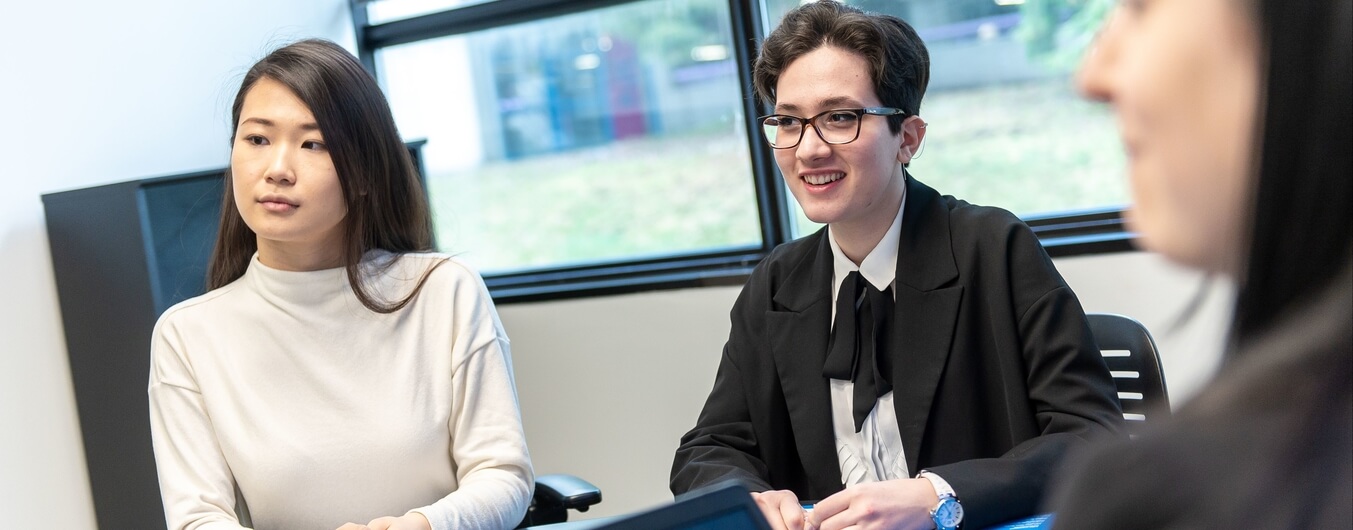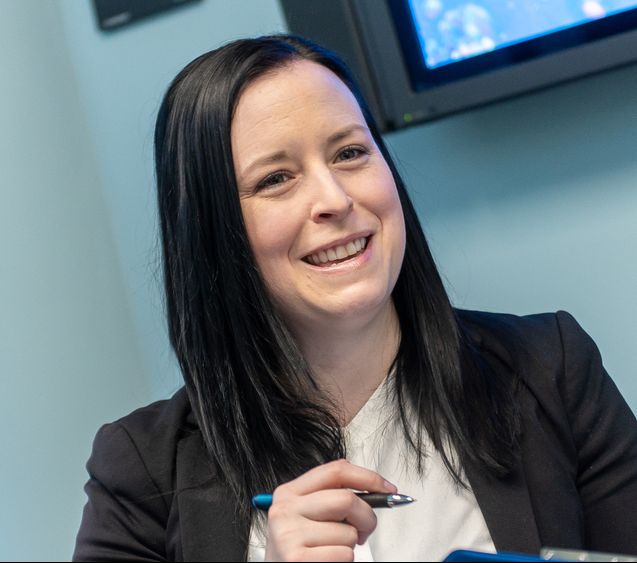
Whether you're testing out your latest hypothesis in the lab or exploring ideas for your future, the process can be surprisingly similar.
The biggest scientific discoveries don’t usually happen over night - the same is true in life and career exploration. It usually takes a few (or sometimes many) attempts at identifying and exploring your curiosities, getting experience, and connecting with people. Take these steps to clarify your strengths, values and skills, and help you move forward in a way that’s right for you.
The whole point of experimenting is to discover new things, which means making mistakes that lead to exciting learning opportunities along the way. It’s important to think about both your positive and challenging experiences and to reflect back on what you can learn from them. From there, consider how you can apply those lessons going forward.
So let’s get started on your next experiment: your career!
Make observations (about who you are)
The things that you’ve done, places you’ve gone, your family, friends and community, as well as your interests, hobbies and beliefs all matter. Take stock of your skills, interests, abilities and the things that are important to you. Observe how these shape and inform your identity and the decisions you make about life and career.
Start by asking yourself:
- What do I already know I’m interested in?
- What experiences have I had and what did I learn about myself from them?
- What are my ideas and values about career and where do they come from?
Then, consider trying some of the following activities to further explore and clarify who you are and what matters to you.
- Career assessments - Explore your past experiences and accomplishments to help uncover new interests and opportunities using self-guided exercises.
- Individual development plan - Designed for Science students to help clarify your skills, values and interests, and create a plan to explore your way forward.
- Industry profiles - Get new job ideas by checking out how other professionals have combined multiple interests in their careers.
As a Science student in a lab, you immerse yourself in curiosity. Use this “career experiment” as an opportunity to get curious about yourself and make observations to help you better identify your next steps.
Ask a question
There are many things you can do with your degree – there isn’t just one option or right path! Clarifying the questions you have about your life and career will help you move forward and take action in your career experimentation. Whether you’re ready to jump right into your job search or are still exploring your academic and personal interests, there’s no right or wrong place to begin.
So what questions do you have? Here are a few ideas to get you started:
- What can I do with my degree? How can I find work that relates to my studies?
- How can I access opportunities and get experience?
- Who can I connect with to help me explore different options?
- What career paths align with my desire to make a particular contribution or impact?
Once you’ve clarified your initial question, move onto developing a hypothesis for how to take action on it and work through the remaining stages outlined in this blog post. You might not get all of the answers you’re seeking at once, but this is great place to start.
If you have multiple questions, keep track of them and revisit your list as you make progress. Just take them one at a time.
Develop a hypothesis
As you know, a hypothesis is an educated guess. It doesn’t mean you already know the answer to your problem. It means that based on previous observations you’ve made, you are trying to predict an answer or solution. And the same applies to exploring and experimenting with your career.
So what could a career exploration hypothesis sound like?
- If I attend UBC career workshops to learn about resumes/cover letters, interview skills and networking, that will give me greater confidence in my job search and help open doors to new opportunities.
- If I do some informational interviews with industry professionals, grad students and my professors, that will help me clarify if I want to pursue further studies or get work experience after graduation.
- If I do the activities outlined in the Observation stage, I can develop greater awareness and clarity around my interests, skills and values.
This is the time to come up with lots of ideas about what you could try. These examples below can help you move forward in exploring your question:
- Attend UBC career workshops and events
- Find advice on job search, resumes, informational interviews and others
- Get experience and explore career guidance for Science students
- Learn about the Canadian labour market
As you move back and forth throughout your career experiment and try out different ideas, know that this is not intended to be a linear process from A to B to C. Every step of the way, remember to check in with yourself and reflect on what you’ve learned about yourself or from the experience in general. Use this feedback to guide you in either continuing to explore your way forward or to revisit any of the earlier stages and adjust your strategies.
Conduct an experiment
As you build your career, approach it like a researcher or scientist in the lab. Roll up your sleeves, get curious, test out your hypothesis and take action. The purpose is to try something, learn from it and consider how you can apply what you’ve learned.
Career and life exploration are complex. While some opportunities and learning may come to us easily, stress or a feeling of being stuck can also be inherent in the process. Whatever comes up for you, there are strategies that can help you deal with these.
Analyze the Results
If you’re closer to answering your question, ask yourself:
- What do I have more clarity about now?
- What was helpful?
- How do I feel now?
- Would I benefit from trying anything else before moving forward?
If you still feel uncertain, ask yourself:
- What other strategies or tactics could I try?
- Do I need to put in more effort?
- Who could I ask for support?
- Do I need to change my question or hypothesis?
- Do I need to make more observations about myself?
If you’re still struggling to get clarity, try reframing any setbacks or feelings of uncertainty as simply being a form of feedback telling you that it might be time to try out some new strategies. Remember, the focus of experimentation is on progress, growth, and learning, not on perfection.
Draw conclusions
As Science students, you are keenly aware of the ups and downs of experimentation and that sometimes the most important learning happens when things don’t go perfectly. Take some time to reflect on what you’ve tried in order to give you a sense of clarity about what you’ve learned.
- How can you take what you’ve learned and use it to inform your next steps?
- What are some benefits of full or even partial success in your experiment?
- What traits and skills could you develop that would help you move forward?
- What are your next steps?
As you know, experimentation starts out to prove a hypothesis; in the field of science or in your personal life, experimentation can sometimes lead you to establishing a new hypothesis. This isn't a signal to stop experimenting - it is a signal that there is always more to learn. Keep exploring what you can do with your Science degree.
Your career journey is an ongoing process and you’ll likely start new “career experiments” throughout your life. Recognize yourself for the important effort you invest at every stage and be proud of the learning and growth you achieve along the way.

About the Author
Jenn is a Career Strategist at the UBC Centre for Student Involvement & Careers and is an expert in career development. Connect with additional resources and workshop schedules from the Centre for Student Involvement & Careers online.
